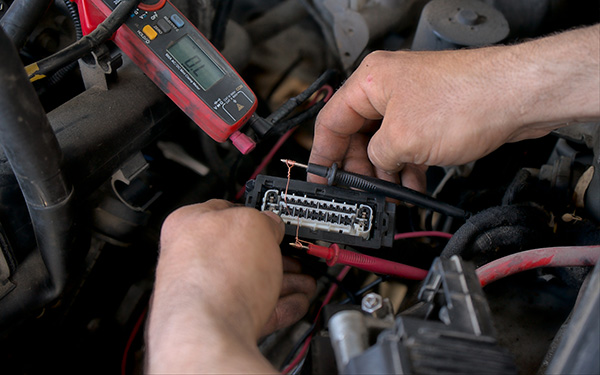
Modern vehicles rely on dozens of sensors to monitor engine operation, emissions, safety systems, and more. These components help the car make constant adjustments while you drive, from fuel injection timing to steering assistance. In many ways, sensors have improved reliability and performance. But they’ve also introduced new complications.
When one of them starts to fail, it can trigger a ripple effect that’s not always easy to trace.
What Automotive Sensors Actually Do
Sensors act as the eyes and ears of your car’s computer systems. They monitor variables like air temperature, wheel speed, throttle position, and engine load. The data gets fed into control modules, which then adjust how the car behaves. For example, the oxygen sensor monitors fuel mixture so the engine can run cleanly and efficiently. If the data is accurate, the system runs smoothly. But when a sensor sends bad information, it can throw everything off.
How One Bad Sensor Can Affect Multiple Systems
When a sensor fails, it doesn't always shut down the system it's part of. More often, it causes incorrect readings that confuse other systems. A faulty mass airflow sensor might make the engine run rich, leading to poor fuel economy. A wheel speed sensor issue can disable the ABS and traction control systems. The problem may feel like a mechanical failure, but the root cause could be a single faulty sensor giving incorrect input.
Sometimes the car will compensate for a bad sensor by switching to a default setting. That may keep it running, but not well. Fuel economy drops, performance suffers, and emissions may go up. The check engine light might come on, but in some cases, there are no obvious warnings until a part of the system starts to fail entirely.
Why Diagnosing Sensor Failures Is So Tricky
Unlike older vehicles, where problems were mechanical, modern sensor-related issues often feel vague. The engine may hesitate, shift strangely, or lose power intermittently. These symptoms come and go, depending on how the failing sensor behaves. Scanning for trouble codes is the starting point, but it doesn't always give a complete answer. In some cases, multiple sensors report errors because they’re all affected by one failing part upstream.
That’s why accurate diagnostics are so important. Replacing the wrong sensor won't solve the issue and can waste time and money. A thorough inspection should include checking live data from sensors, testing wiring, and ruling out mechanical issues that could be triggering false sensor readings.
What Failing Sensors Can Feel Like on the Road
These symptoms may come and go without warning, which makes them easy to overlook at first. But once a sensor starts acting up, it rarely gets better on its own.
Sensor Repair and Diagnostics in San Jose You Can Count On
If your vehicle feels off, lags during acceleration, or shows intermittent warning lights, it could be a sensor problem. Pinpointing the issue takes the right tools and experience. Guesswork leads to unnecessary repairs and frustration. A proper diagnostic can save time, reduce costs, and get your car running the way it should.
Let Dhillon Motorsports in San Jose Keep Your Vehicle Running Right
At Dhillon Motorsports, we specialize in advanced diagnostics for sensor-related problems. Whether it’s a small hesitation or a system warning that won’t go away, we’ll find the cause and fix it the right way.
Call us today to schedule a comprehensive inspection.